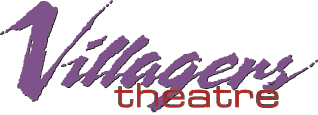Master Class |
June 1-23, 2001by
|
| Maria Callas is teaching a master class in front of an audience (us). She’s glamorous, commanding, larger than life—and drop-dead funny. An accompanist sits at the piano. Callas’ first “victim” is Sophie, a ridiculous, overly-perky soprano, dressed all in pink. Sophie chooses to sing one of the most difficult arias, the sleepwalking scene from La Sonnambula—an aria that Callas made famous. Before the girl sings a note, Callas stops her—she clearly can’t stand hearing music massacred. And now what has started out as a class has become a platform for Callas. She glories in her own career, dabbles in opera dish and flat-out seduces the audience. Callas gets on her knees and acts the entire aria in dumb show, eventually reducing the poor singer to tears. But with that there are plenty of laughs going on, especially between Callas and the audience. Callas pulls back and gives Sophie a chance to use what she’s learned. As soon as Sophie starts singing, though, Callas mentally leaves the room and goes into a sprawling interior monologue about her own performance of that aria and the thunderous applause she received at La Scala. Callas wakes up and sends Sophie off with a pat. The next two sessions repeat the same dynamic, only the middle session is with a tenor who moves Callas to tears. She again enters her memories, and we learn about Callas’ affair with Aristotle Onassis; an abortion she was forced to have; her first elderly husband whom she left; her early days as an ugly duckling; the fierce hatred of her rivals; and the unforgiving press that savaged her at first. Finally, we meet Sharon, another soprano, who arrives in a full ball gown. With Sharon singing, Callas is genuinely moved, for the young singer has talent, but Callas tells her to stick to flimsy roles. Sharon is devastated and spits back every nasty thing you’ve ever heard about Callas: She’s old, washed up; she ruined her voice too early in her career; she only wants people to worship her, etc. Sharon rushes out of the hall, and Callas brings the class to a close with a beautiful speech about the sacrifices we must make in the name of art. | |
Production Staff
| Producer | Roz Wroblewski |
| Director | Michael Driscoll |
| Costume Design | Roz Wroblewski |
| Lighting Design | Jak Prince |
| Set Design | Jim Parks, Sr. |
| Sound Design | Ken Howard |
| Sound System Set-Up | Jon “Coop” Ballek |
| Props | Roz Wroblewski |
| Lighting Operator | Scott Hill |
| Stage Manger | Marina Aleshire |
The Cast
| Maria Callas | Catherine Rowe |
| First Soprano (Sophie) | Sarah Kuhns |
| Second Soprano (Sharon) | Kelly Birgfeld |
| Tenor (Tony) | Dominic Mantuano, Michael Monaco |
| Accompanist ( Manny) | John W. Watson |
| Stage Hand | James Fiorello, Joe Zedeney |
